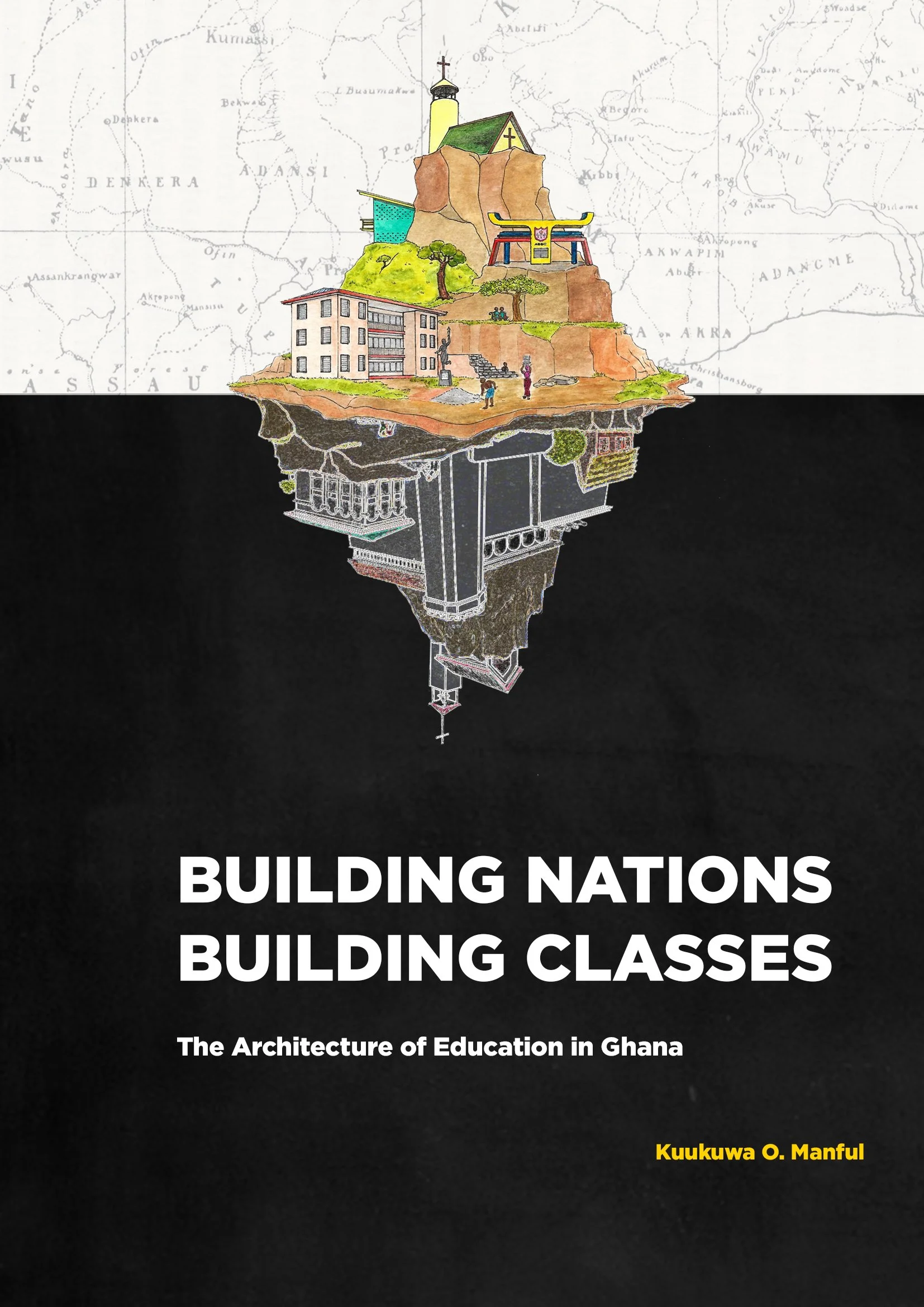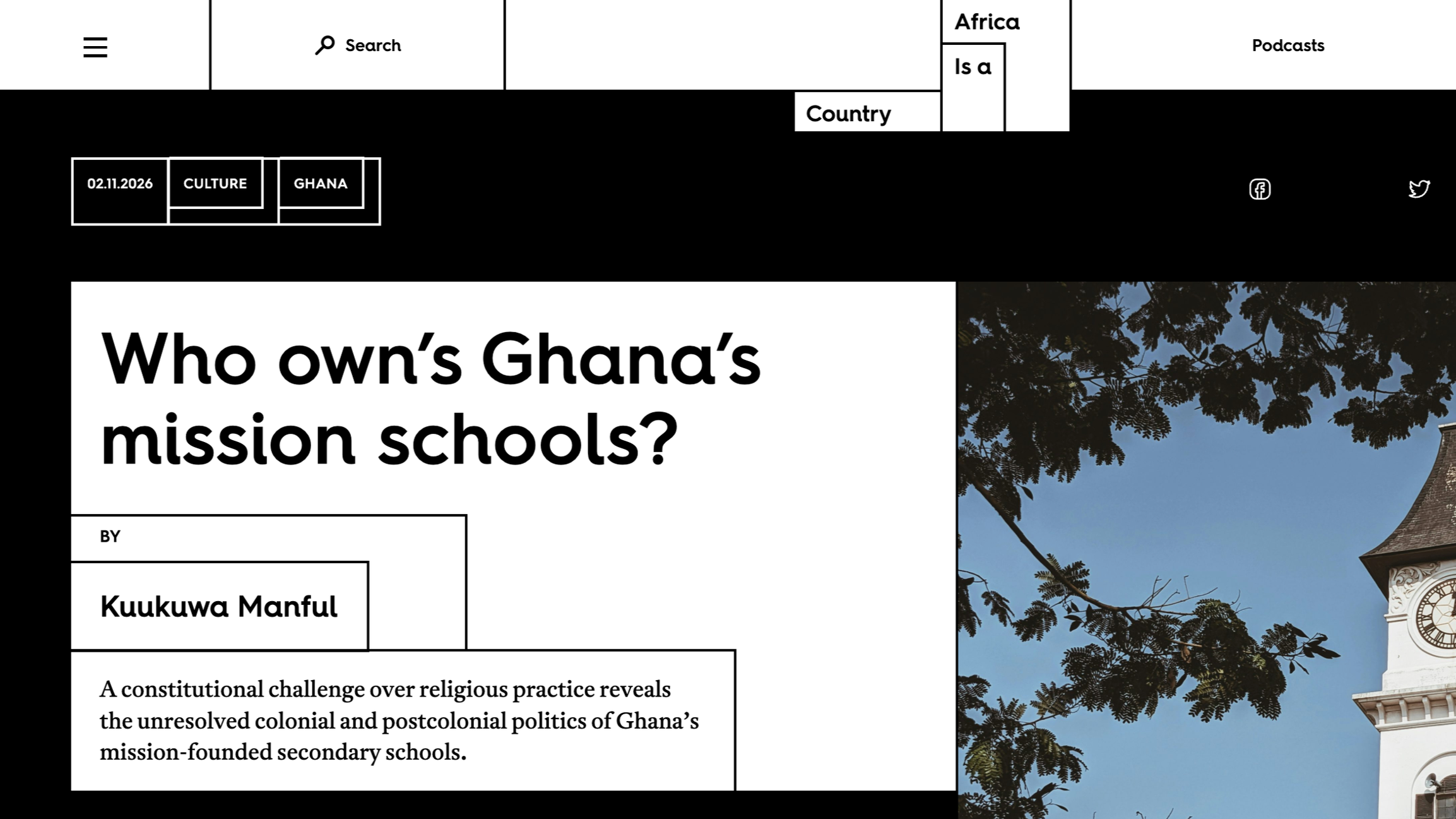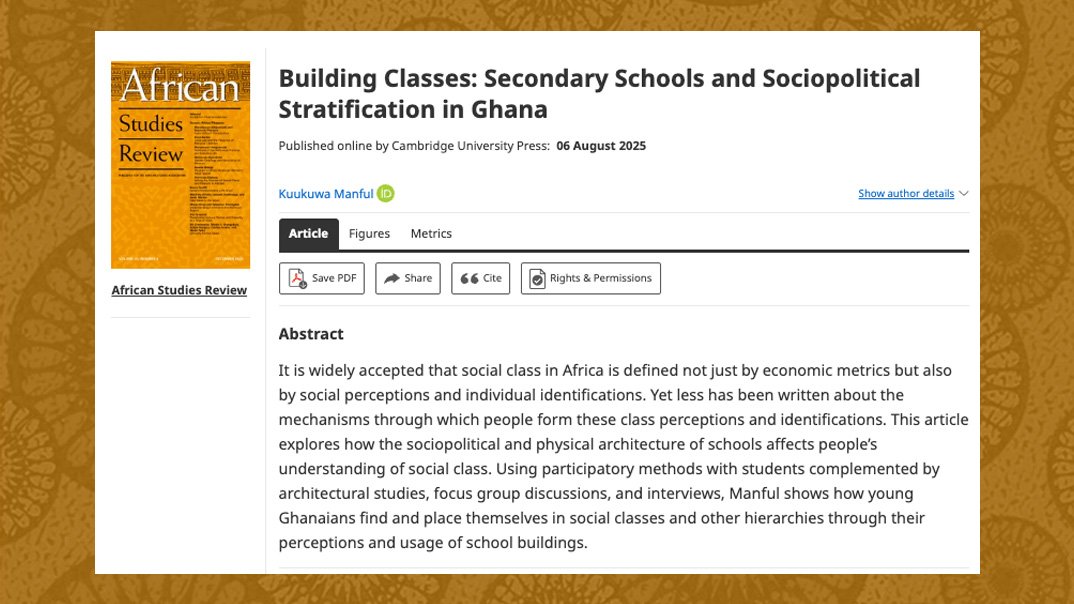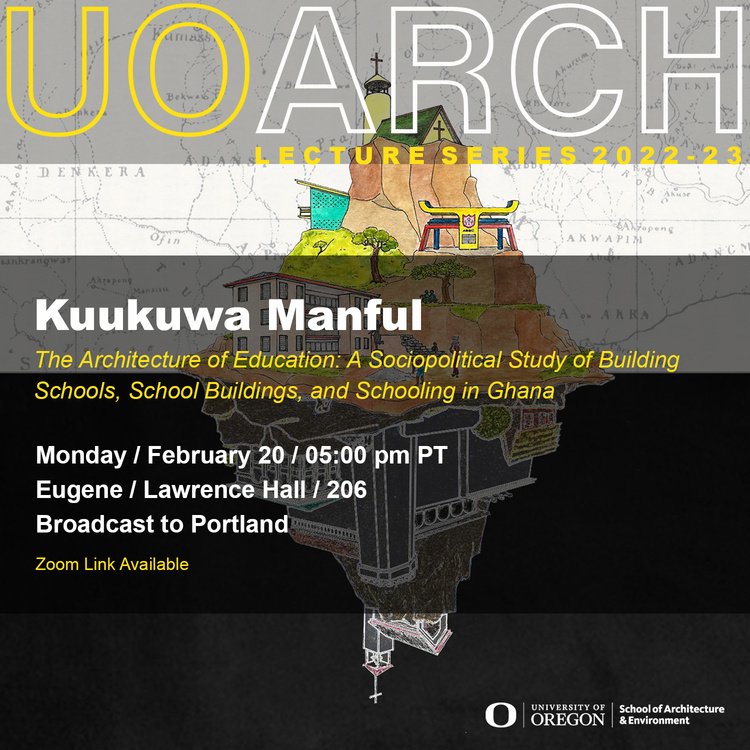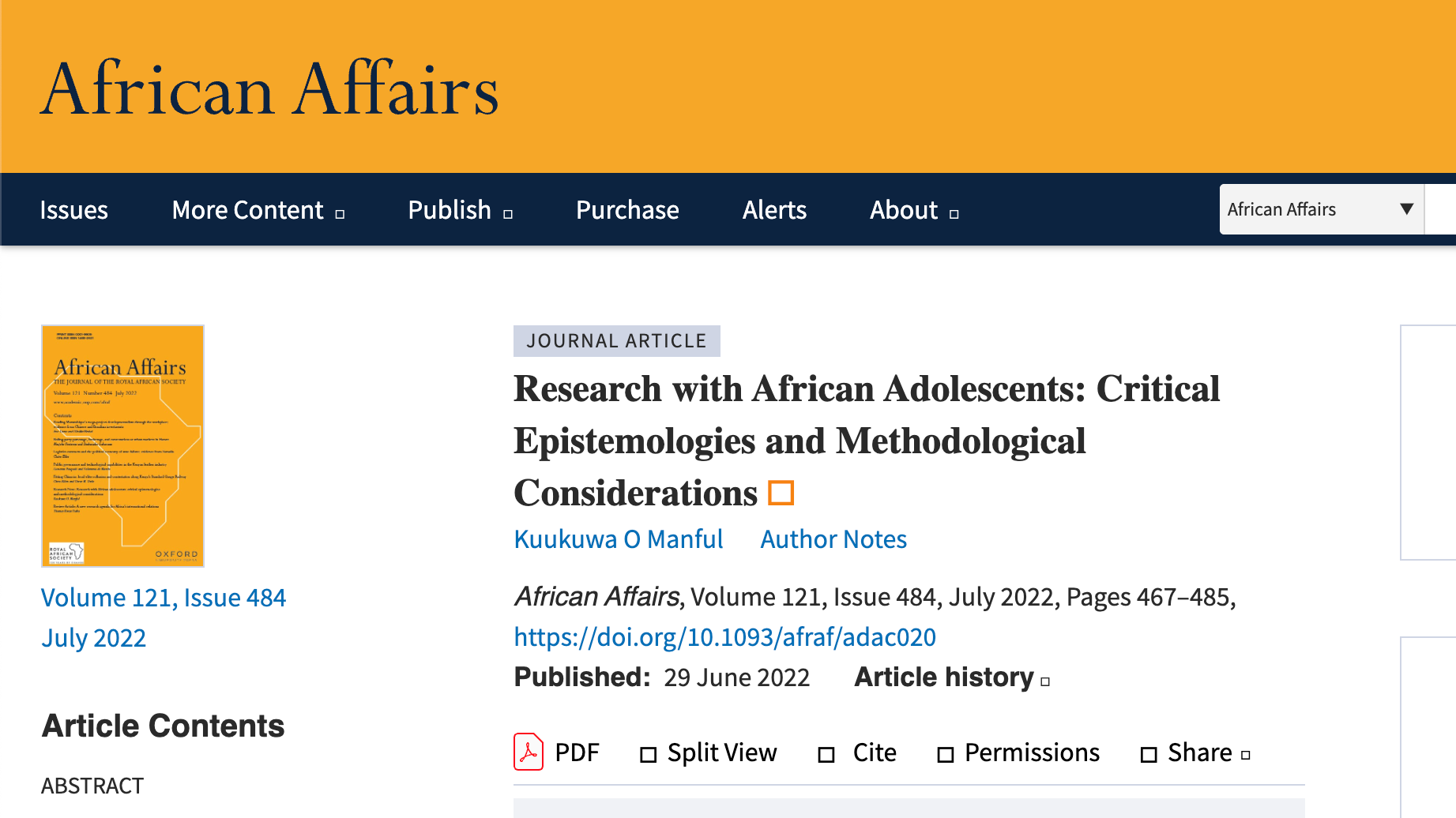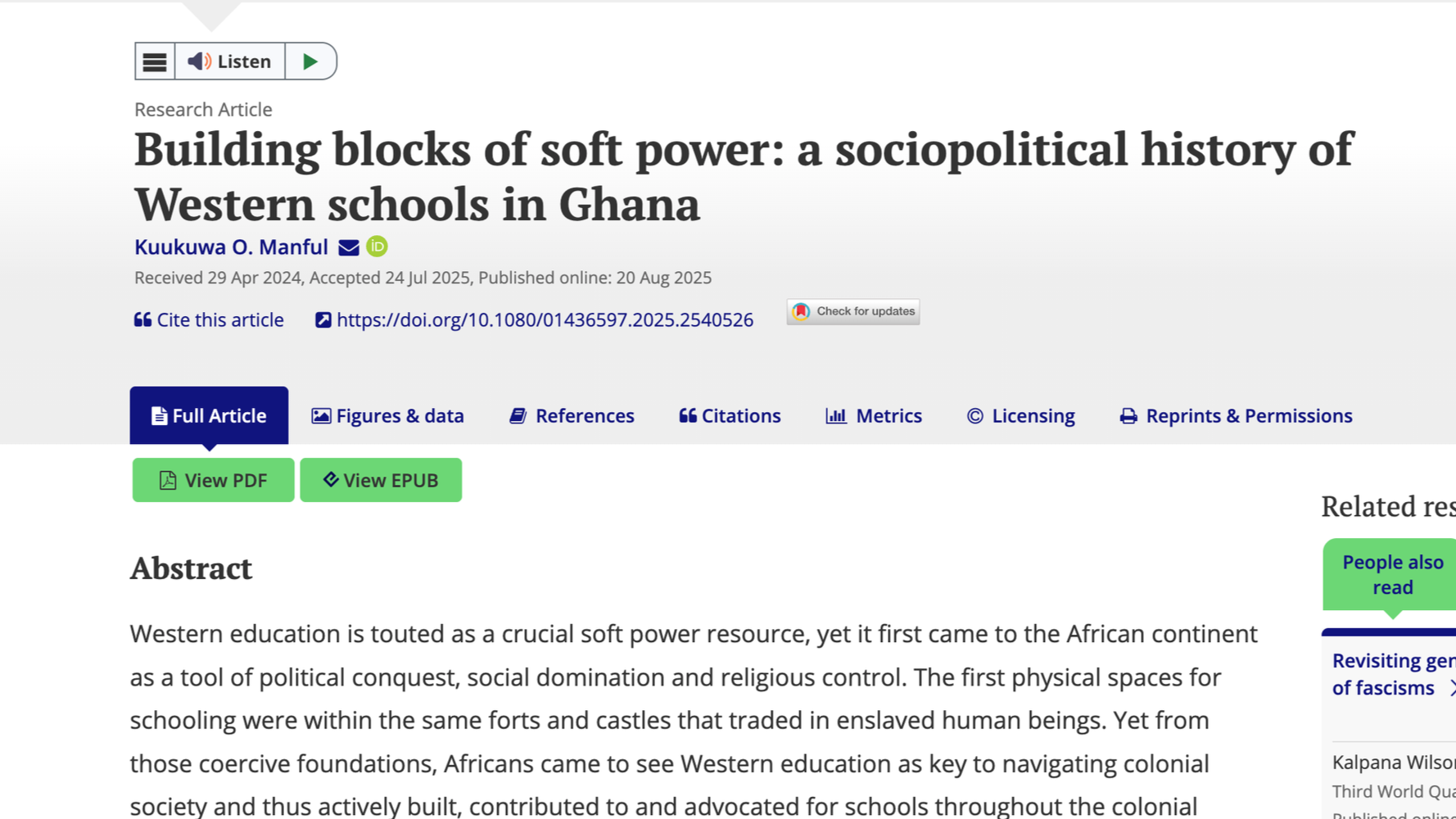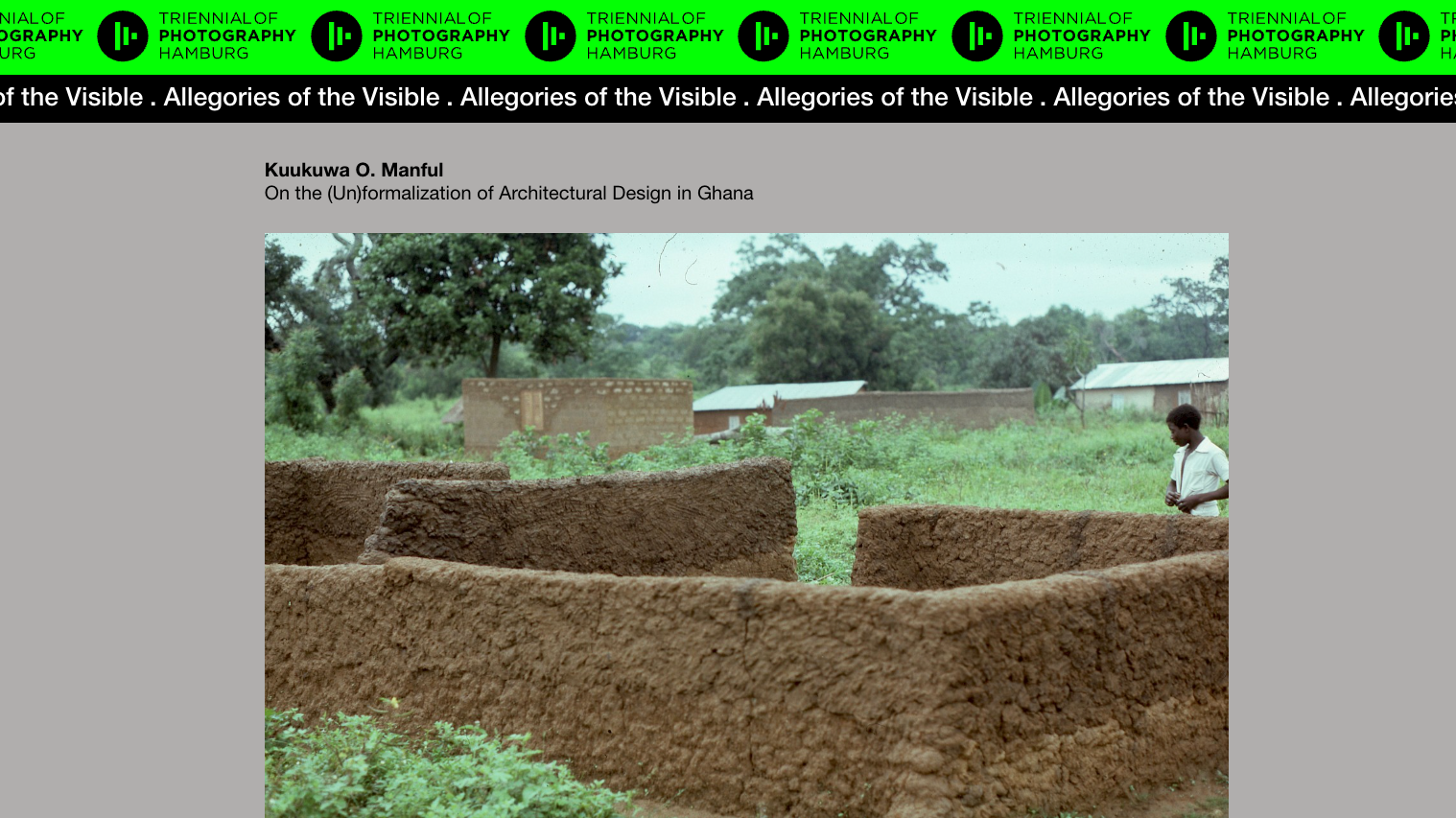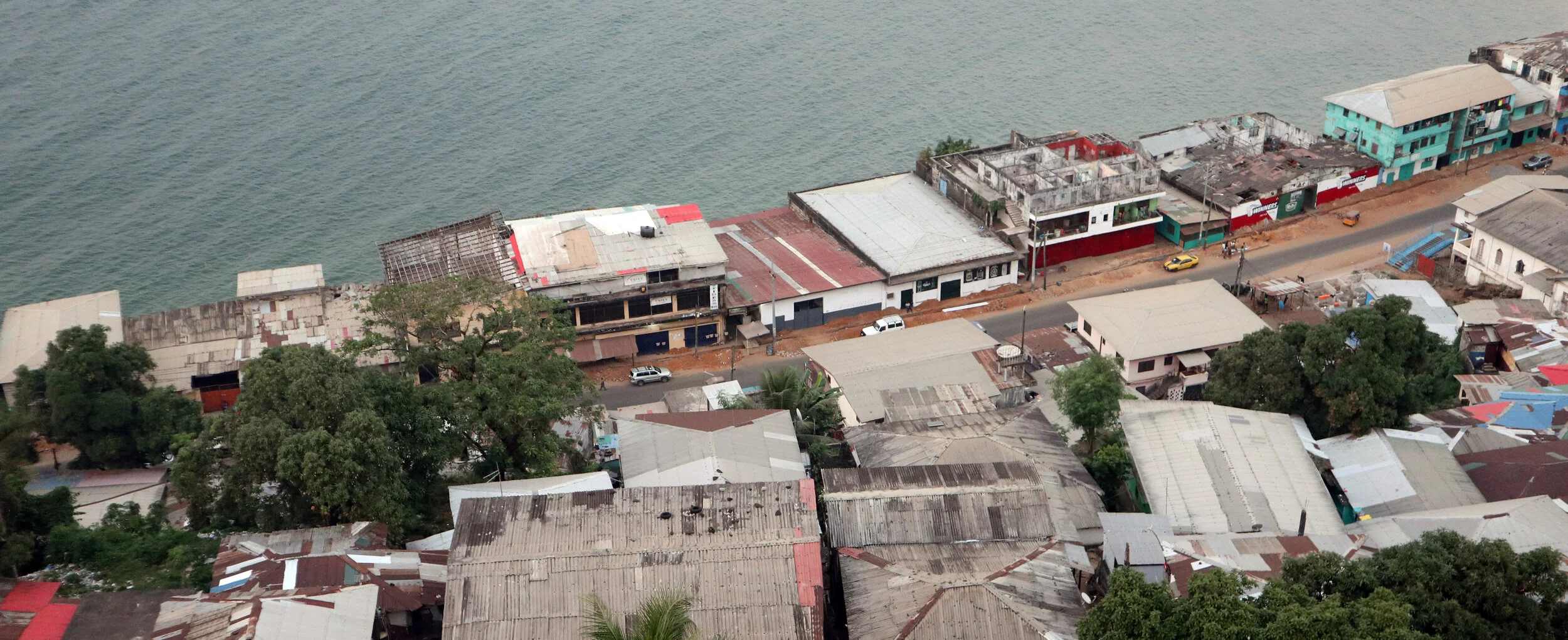
Research
The Architecture of Education in Ghana
Building a Nation, Constructing Classes
Book in progress
Building a Nation, Constructing Class: The Architecture of Education in Ghana documents how schools and schooling in Ghana transformed over the course of centuries from brutal colonial impositions to cornerstones of nation-building and class identity. It explores this through the physical and sociopolitical architecture of school buildings themselves. Straddling architecture, history, and politics, the book examines the long history of Western-style education in the country, beginning with the establishment of the first school in a Portuguese slaving fort in the then-Gold Coast in the 16th century and continuing with the first purpose-built secondary schools in the 19th century, the rapid expansion of secondary schooling as part of independence-era nation-building in the “Tropical Modernist” architectural style in the 20th century, and ending in the space of secondary schools in the Ghana of today (21st Century).
The book makes two main arguments. First, that Ghanaians use the physical and sociopolitical architecture of secondary schools to position themselves and others in class and national hierarchies. While schools in Africa are often assumed to have been provided by missionaries or the state in a top-down or externally driven fashion, the book documents that throughout the colonial and post-independence eras many school construction efforts were actually led by Africans. The second argument is that the longstanding involvement of Africans in the building of schools shows that nation-building is not only a top-down, elite-driven process, but also occurs from the ground up through the activities of various ordinary peoples trying to make places for their communities in broader societies and polities.
SELECTED OUTPUTS
Essay, Africa Is a Country
History of The Architecture Profession in Ghana
Research Project toward a book on the the development of the building design and architecture professions in Ghana from before the 14th Century to the 21st Century.
This project charts the histories of the architecture profession in Ghana from before it was the Gold Coast to the present-day. It is based on archival research (with sources that include a collection of endangered archives that I digitised with a grant from the British Library), and field research.
SELECTED OUTPUTS
School Building(s) in West Africa
Constructions of Nation, Citizenship and Modernity
Research towards a PhD in Political Science and International Studies at SOAS, University of London
Completed
KEYWORDS: Politics of Architecture, West African History, Education, Nation-Building + Citizenship, Modernity, Architectural Modernism, African State Architecture, African ArchitectureThis study analyses citizenship and modernity in light of nation-building though a study of the architecture of state schools in West Africa.
States often use physical structures to signal ideals, to project power and to communicate messages - some of them subliminal or unintended - and where these structures manifest in the form of functional architecture, an additional element comes into play. Buildings no longer function mainly as symbols, but also as sites for control, behavioural modification, regulation, ceremony and more. Educational institutions in particular present unique opportunities as sites of control, for the projection of state power and for the transmission of national norms and values. This is why colonial and post-colonial state authorities in Africa alike used state schools for the making and unmaking of citizens according to the aspirations of the ruling classes and their visions of society.
Empirically, I examine selected schools as sites of nation-building, and for the making of citizens through architectural analysis, archival research and ethnographic studies towards make empirical and conceptual contributions to the study of nation-building, citizenship and modernity in Africa.
SELECTED OUTPUTS
Exhibition, Accra, Ghana
Exhibition, Addis Ababa, Ethiopia
Guest Lecture: University of Southern California
Ghana Studies Conference Presentation, 2019
Kuukuwa Manful talks about the African State Architecture Project
The (Un)formalisation of Architectural Design in Ghana
Ongoing Research based on my Accra Architectural Archive Digitisation Project
This is ongoing research around the formalisation, formality, and informality of architecture and the people who build, through a concept that I term unformalisation.
I have begun exploring this concept by way of an article commissioned by the Hamburg Triennale of Photography titled “On the (Un)formalisation of Architectural Design in Ghana” and in a chapter in a forthcoming edited volume Architecture and Politics in Africa. I put forward the idea that just as the formalisation and regulation of the built environment – a process initiated by colonial authorities and continued by post-independence governments – is a process of state and institutional power, so is unformalisation. By unformalisation, I refer to the diminishing and othering of knowledge, activities, and objects by states and other organisations of authority. It differs from informality and the informal, which are generally conceptualised as residual categories of formalisation and formality, in that unformalisation is a deliberate technology of state, elite, and institutional exclusion.
Most of the actual architectural production in Africa is unformalised – that is, it is excluded by formal institutions and the state and not considered “real” architecture. Yet, research disproportionately focuses on the small section of the built environment in Africa that is formalised. Scholarship needs to reflect what architecture on the continent is now, rather than solely what it ought to be or used to be, and this is precisely what my work on unformalisation seeks to address.
SELECTED OUTPUTS
Commissioned Essay, Triennial of Photography, Hamburg
Book Chapter, Architecture and Politics in Africa
Building Identity
Ghanaian Architects and Tropical Modernism
Dissertation for an MSc in African Studies
at University of Oxford
KEYWORDS: Politics of Architecture, Ghanaian History, Tropical Modernism, Professionalisation, Architectural Modernism, Modernity, Architectural IdentityTropical Modernist buildings are a vital part of what is thought of as modern West African architectural identity. And yet the story of the style has been told solely through the lens of the European architects involved in designing those buildings, though during this period there was an increasing number of African architects beginning to practice in West Africa.
Very little is known about these African architects and their relationship to Tropical Modernism.
This dissertation addresses this gap by examining where, why and how indigenous Ghanaian building design professionals placed themselves in the context of the Tropical Modernism movement between 1962, when the first Tropical Modernist building was designed by a Ghanaian, and 1972, the year of Ghana’s second coup d’état which marked the beginning of economic decline and a corresponding halt in construction activity.
SELECTED OUTPUTS
Essay in The Conversation
Essay in The Architecture Review
Peer-reviewed conference paper
An African Renaissance
Towards the Design of an Urban Arena in Bantama, Kumasi
Thesis for a Master of Architecture
at Kwame Nkrumah University of Science and Technology
KEYWORDS: Architectural Identity, Asante History, Tropical Modernism, Professionalisation, Architectural Modernism, Modernity, Architectural IdentityThis thesis explored the concept of a regional architectural identity towards the design of an Urban Arena in Bantama, Kumasi.
Examples of indigenous Asante Architecture were studied and analysed with the aim of extracting characteristics that form the essence of Asante Architecture. These characteristics were used as points of departure in the design of an Urban Arena in Bantama, Kumasi.
I developed a style of architecture for this design based on Critical Regionalist philosophy, which is not an attempt to revive the hypothetical forms of a lost vernacular but rather a “dialectical expression” (Frampton, 1983) attempting to combine the principles of modernism with a respect for zeitgeist (spirit of the time) and genius loci (spirit of the place).
Cultural references for the zeitgeist and genius loci were drawn from the results of the observation studies of the instances of traditional and contemporary Asante architecture.
SELECTED OUTPUTS
Master of Architecture Design Thesis
Feature in The Architecture Review
